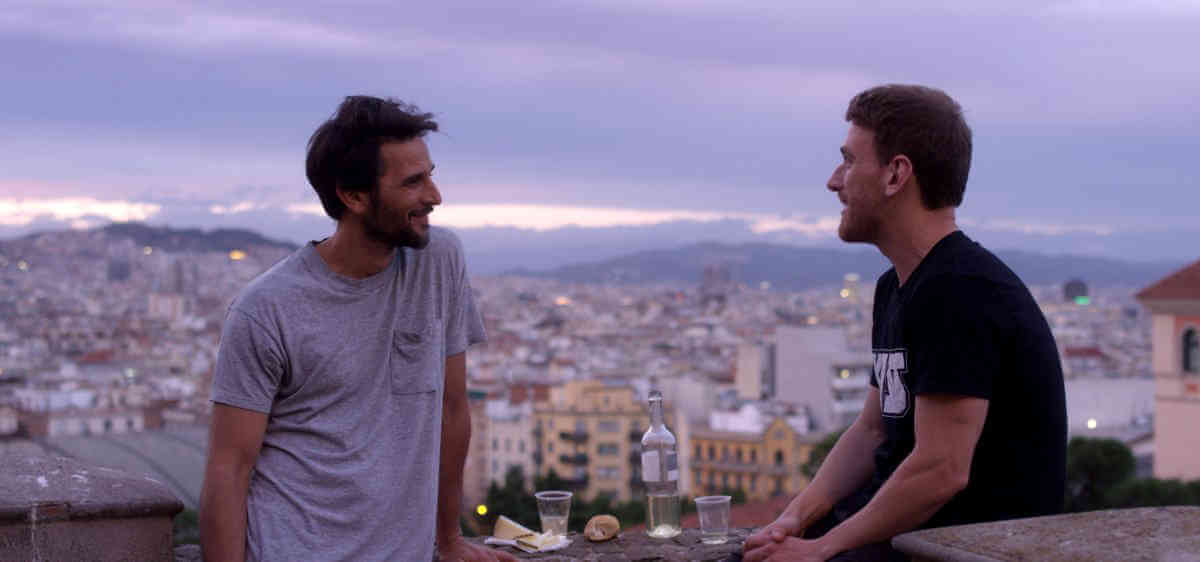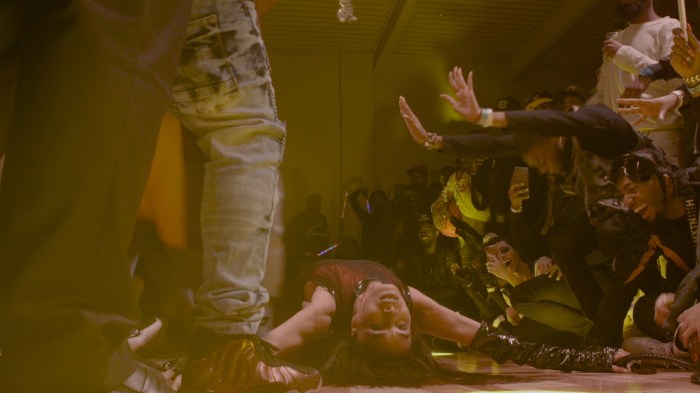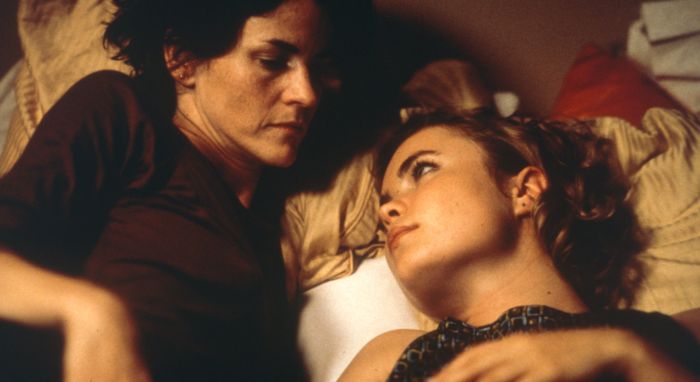There were some outstanding queer films in 2019, but most of them required subtitles for English-speaking audiences. American cinema offered a few notable LGBTQ films, such as the hilarious “Booksmart” (which sadly “underperformed” at the box office). There was also the entertaining “Rocketman,” which did not quite hit the heights of last year’s queer musical biopic “Bohemian Rhapsody.” (Both “Booksmart” and “Rocketman” had their queer sex scenes and gay content edited out on Delta flights, which created a kerfuffle). But the best American queer films this year were documentaries — most of which drew small (in one case, miniscule) but appreciative audiences.
But by and large, the best LGBTQ films came from afar: Latin America, Europe, and Africa. Here is a look back on the best queer films from 2019.
Best Feature Debut: “End of the Century”
Out gay writer/ director Lucio Castro’s wistful, seductive bromance was arguably the year’s best queer film. A hookup between lonely, horny Ocho (Juan Barberini) and the irresistible Javi (out actor Ramon Pujol) becomes a time-jumping, mind-bending drama about the nature of love and desire. This film is at once hypnotic, romantic, and magical.
Best Film No One Saw: “5B”
Paul Haggis and Dan Krauss’ compassionate documentary, named for the first AIDS ward in San Francisco, made less than $73,000 in its entire 23-week theatrical run. This life-affirming film about the doctors, nurses, and patients who recount their fears, tragedies, and occasional triumphs during the height of the AIDS epidemic, is both powerful and extremely moving. It needs to be seen.

Best Screen Newcomer: Félix Maritaud in “Sauvage/ Wild”
As Léo, an attractive 22-year-old gay sex worker in writer/ director Camille Vidal-Naquet’s blistering drama “Sauvage/ Wild,” Maritaud gives the year’s breakout performance. He uses his sexy, often-naked body to express Léo’s despair and inchoate desires. As Léo sleeps in the streets, encounters a couple wielding a massive butt plug, or unexpectedly hugs a doctor, he is vulnerable, hard, and sympathetic. Maritaud is magnetic swaggering through the Parisian streets or plying his trade. He is comfortable in his skin and makes viewers swoon.
Best Mindfuck: “Diamantino”
The incredibly inventive Portuguese film, from Gabriel Abrantes and Daniel Schmidt, is batshit crazy — but in the best possible way. Silly and campy one minute and making barbed political comments about the EU the next, it plays with gender and sexuality, genetics, cloning, body altering, the World Cup, and giant fluffy puppies. The adorable and dumb title character (Carloto Cotta) is a soccer player who loses his mojo. He adopts Aisha (Cleo Tavares), a lesbian Portuguese secret service agent working undercover as a male African refugee orphan named Rahim in order to investigate Diamantino. There’s more — much more — as the film transforms into a bizarre but tender romance.
Best Documentary: “Where’s My Roy Cohn”
For some, this vivid documentary will be a hate-watch. But give Matt Tyrnauer’s detailed and layered film a look. It unpacks Cohn, who never admitted he was gay or that he had contracted AIDS. Yes, the film generates righteous anger as it presents Cohn’s many misdeeds and addresses his relationship with the current president. It is also smart and satisfying throughout.
Best Lesbian Film: A tie between the romantic “Portrait of a Lady on Fire” and the comic “Booksmart”

Out director Céline Sciamma’s “Portrait of a Lady on Fire” is a stunning, elegant, slow-burn romantic drama set in the 1700s in France. Marianne (Noémie Merlant) is hired to paint Héloïse (out actress Adèle Haenel) without the latter’s knowledge. The two slowly fall in love, and when the two women finally kiss it is electrifying.
Olivia Wilde’s “Booksmart” is a whip-smart comedy about two overachievers trying to make up for all the partying they missed in high school. Molly (Beanie Feldstein) is the valedictorian who corrects graffiti on the bathroom wall. Her bestie is Amy (Kaitlyn Dever), a lesbian who has never kissed a girl. The film succeeds because it is consistently knowing and funny and never mean-spirited. And Amy’s sex scene is downright hilarious.
Best Controversial Film: “Rafiki”
Wanuri Kahiu’s marvelous queer romance from Kenya was banned in its native country for “promoting lesbianism.” (The ban was eventually lifted.) “Rafiki” depicts the relationship that develops between the tomboy Kena (Samantha Mugatsia) and the sexy Ziki (Sheila Munyiva), two young women whose fathers are political rivals. It is a vibrant and touching romance.
Best Trans Film: “Adam”
Director Rhys Ernst’s shrewd romantic comedy-drama has the title character (Nicholas Alexander), a cisgender, heterosexual, and virginal 18-year-old male attracted to Gillian (Bobbi Salvör Menuez), a lesbian. Adam does not initially correct Gillian when she assumes that he is transgender. As their relationship blossoms, however, Adam struggles with his deception. If “Adam” sounds like an insensitive comedy, out lesbian writer Ariel Schrag, adapting her own novel, is quite clever in how she addresses issues of gender and sexuality, even for a savvy genderqueer audience. This film is much better than its sounds.
Best Gay Film: “Pain and Glory”
Out gay filmmaker Pedro Almodóvar’s elegiac autofiction is an exceptional film buoyed by Antonio Banderas’ fantastic performance as Salvador, a filmmaker with writer’s block and physical pain. Almodóvar uses color brilliantly to convey emotion, but there is also tremendous passion in scenes such as Salvador’s kiss with his ex-lover, Federico (Leonardo Sbaraglia), or from Salvador’s childhood attraction to a hunky illiterate builder, Eduardo (César Vicente). This is a great film about how pain can create great art.




































